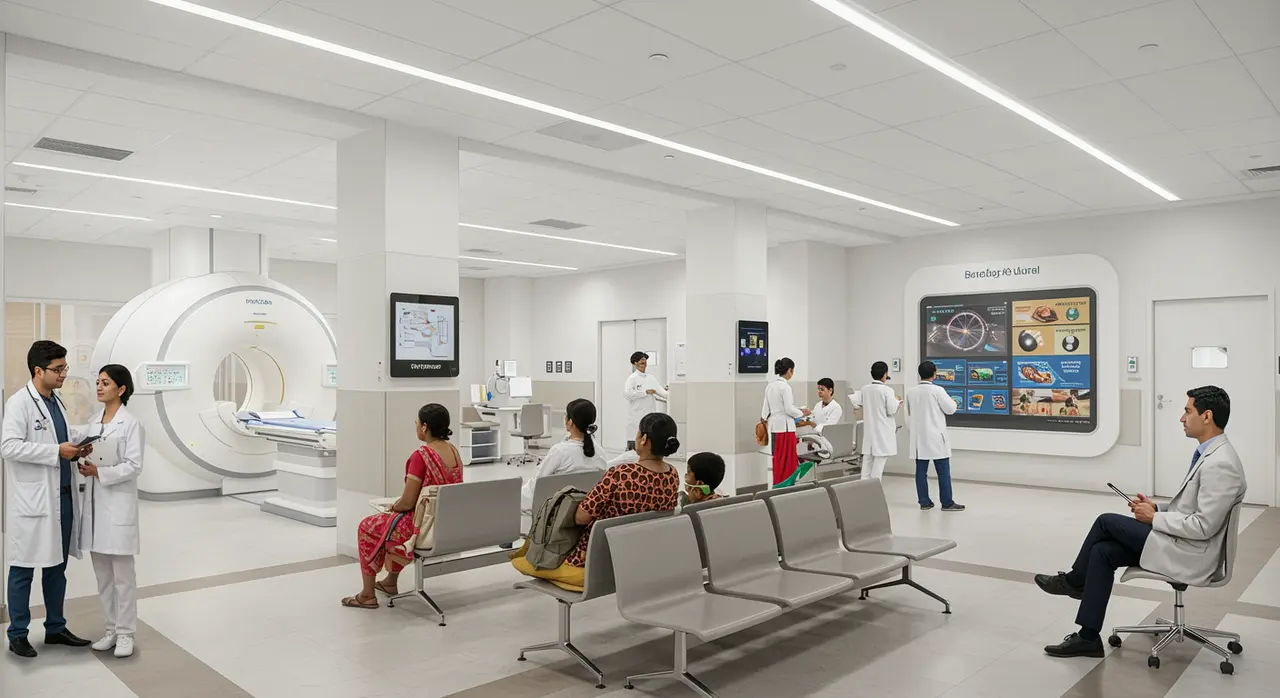Indias Healthcare Hiring to Surge 52% in 2024 Amid Digital Health Boom
38 views
Healthcare hiring in India is poised for a significant upswing in the first half of 2024, with a projected 52% hiring intent fueled by transformative advancements in digital health solutions, diagnostic services, and the growing demand for specialized care professionals. While metropolitan cities such as Bengaluru, Delhi, and Chennai are at the forefront of this surge, tier 2 cities are rapidly emerging as promising healthcare hubs, signaling a broader shift in the industry’s landscape. Certification courses tailored to evolving industry needs are further shaping the workforce, aligning skills with the burgeoning opportunities in clinical data analysis, pharmacy technician roles, and automated transcription technologies.
The Pulse of India’s Expanding Healthcare Workforce
India’s healthcare sector, long recognized for its resilience and adaptability, is undergoing a seismic shift as it embraces innovation and technology. The hiring momentum reflects this transformation, with roles such as medical transcriptionists, clinical data analysts, pharmacy technicians, phlebotomists, and dieticians becoming increasingly indispensable. Bengaluru, often dubbed India’s Silicon Valley, is leading the charge, leveraging its tech-savvy ecosystem to integrate AI-driven diagnostics and telemedicine into healthcare practices. Delhi and Chennai, too, are witnessing robust demand, buoyed by their established medical infrastructure and access to skilled professionals.

The rise of tier 2 cities as healthcare hubs is particularly noteworthy, offering a glimpse into the democratization of healthcare services. Cities like Pune, Coimbatore, and Jaipur are stepping into the spotlight, driven by investments in medical infrastructure and the proliferation of specialized care facilities. This decentralization not only addresses the healthcare needs of underserved regions but also creates a ripple effect, fostering employment opportunities and economic growth in areas that were previously overshadowed by metropolitan centers.
At the heart of this transformation lies the growing prominence of certification programs, which are equipping professionals with the skills required to navigate the industry’s evolving demands. Courses in clinical data analysis, pharmacy technician training, and automated transcription applications are gaining traction, providing a pathway for aspirants to enter high-demand roles. These certifications are not merely academic credentials but practical tools that align with the industry’s pivot toward precision medicine and data-driven decision-making.
The healthcare market in India, projected to reach a staggering $638 billion by 2025, underscores the scale of this evolution. Investments in AI-driven diagnostics, telemedicine platforms, and state-of-the-art medical infrastructure are reshaping the contours of healthcare delivery. Telemedicine, once considered a niche offering, has become a cornerstone of patient care, particularly in remote areas where access to traditional healthcare facilities remains limited. Similarly, AI-driven diagnostics are enhancing accuracy and efficiency, enabling healthcare providers to offer faster and more personalized treatments.
Yet, this growth is not without its challenges. The demand for skilled professionals is outpacing supply, necessitating a concerted effort to bridge the gap through education and training. While certification programs are a step in the right direction, there is a pressing need for institutions to collaborate with industry stakeholders to develop curricula that reflect real-world requirements. Moreover, retaining talent in tier 2 cities remains a challenge, as professionals often gravitate toward metropolitan centers for better career prospects and amenities.
Reflecting on the broader implications, the surge in healthcare hiring and the accompanying technological advancements signal a pivotal moment for India. The country stands at the crossroads of opportunity, with the potential to redefine healthcare delivery not just within its borders but on a global scale. By fostering innovation, investing in skill development, and addressing systemic challenges, India’s healthcare sector can emerge as a model for other nations grappling with similar issues.
As the first half of 2024 unfolds, the trajectory of healthcare hiring in India will serve as a barometer for the industry’s progress. The interplay between technology, workforce development, and infrastructure expansion holds the key to unlocking the sector’s full potential. And while challenges persist, the promise of a healthier, more equitable future remains within reach, propelled by the collective efforts of policymakers, educators, and industry leaders.